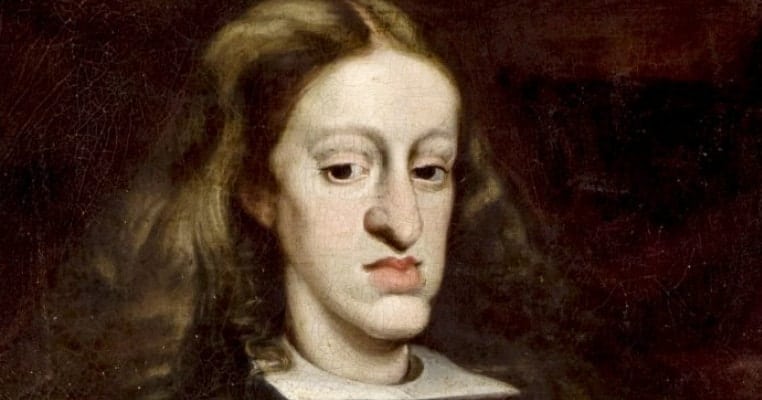Born in 1661, King Charles II of Spain was the last Habsburg ruler of the country. Born into a family whose inbreeding was of epic proportions, he suffered severe deformities that led to him being known as El Hechizado, the bewitched. Charles II became King of Spain at the age of three after his father died in 1665. Charles II often suffered from ill health and much of his reign consisted of others ruling the country in his stead. This led to internal political struggle within his family over who would call the shots. His mother and illegitimate half-brother’s feud led to political turmoil and arranged marriages for the young, sick king. Poor King Charles II suffered through ill health, political unrest and two dead wives before he died in 1700. Childless, his will named Phillip Anjou as successor to the throne, leaving the Spanish Empire in uproar and reeling into the War of Spanish Succession. Read on to learn more about his tragic life and reign.
40. He Was the Epitome of Habsburg Inbreeding

The Habsburgs were notorious for marrying cousins, uncles, aunts, whatever, to keep power within their family. Case in point: All of Charles’ great-grandparents were descended from the same parents: Philip I and Joanna of Castile. Basically, their children had all married their cousins, who had all married their cousins (or someone of a close relation). By the time Charles came along, he was more inbred than if his parents had been brother and sister.

